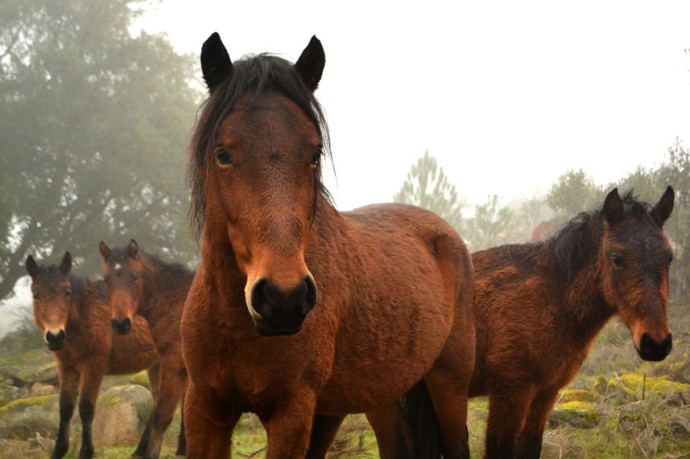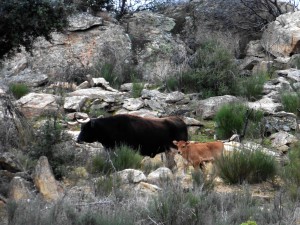End of February is always quite exciting in the Western Iberia rewilding area. It is time to start counting all the calves and foals which are born since December. And every year, the update is even better than the year before: 12 new Garrano foals and 5 Maronesa calves were born this season.

For almost seven years, Associação Transumância e Natureza (ATN), the local organisation actively working on rewilding in Western Iberia, has been delegating an important duty to horses and cows. The duty to manage the land: grazing the area, opening up the landscape to other fauna and flora, and finally, reducing the fire risks.
The Portuguese Garrano horse breed was chosen due to its sturdy characteristics and rewilding qualities such as the ability of living in the wild, coexisting with large carnivores such as the Iberian wolf, or its morphologic adaptation to face the cold temperatures during winter. Herds of Garrano horses roam freely at the Peneda-Gerês National Park, Northwest Portugal (yon can have a trip on special offer to see them), and also at the Faia Brava Reserve, the heart of the Western Iberia rewilding area. Currently, there is a herd of around 46 animals at the reserve and this year new foals were born, reinforcing the great adaptability of the species to this area. The Garrano is also one of the selected horse breeds listed in the Rewilding Europe’s study Rewilding Horses in Europe, the first of its kind on this topic.

Along with horses, ATN further enhanced in 2013 the Herbivore Programme with a herd of Maronesa cows, integrating the Tauros Programme. Last spring, two Sayaguesa bulls were added to the group, to promote the back-breeding of the species. This is the second successful breeding season for the Maronesas. The rewilding team has already spotted five calves, one for each female living in the reserve. So far, it is still not possible to confirm if the newborn calves have genetic material from both breeds, since the two Sayaguesa bulls are usually seen alone, separate from the rest of the group.
All newborns have a lush spring and a subsequent harsh summer ahead. This area is characterised by low annual levels of rain, resulting in gradually lower availability of fresh pasture and water during the summer. The survival rate of the herbivores has been quite positive over the years, but requires routine monitoring by the team. Additionally, more animals result on extra pressure on the land. Therefore, this spring the rewilding team will secure more land to expand the grazing area at Faia Brava and, on the other hand, encourage new partnerships with land owners and managers along the Côa valley, bringing the Rewilding Herbivore Programme to new sites.
